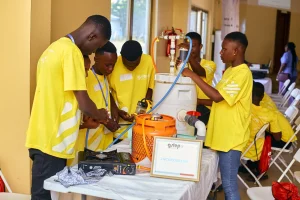
Using time productively is one of the most basic abilities for understudies to dominate, whether they’re in secondary school, school, or graduate school. Adjusting classes, schoolwork, extracurricular exercises, seasonal positions, and public activity can challenge. Without compelling using time productively, it’s not difficult to become overpowered, miss cutoff times, and feel worried. This article gives reasonable time usage tips to understudies to assist you with taking advantage of your day, remain coordinated, and accomplish your intellectual and individual objectives.
1. Focus on Your Assignments
The most important phase in powerful using time productively is figuring out how to focus on your errands. Not all errands are made equivalent; some are more earnest or significant than others. To successfully focus on, think about the accompanying advances:
a. Make a Plan for the day
Begin by recording every one of the assignments you want to finish. This could incorporate tasks, concentrate on meetings, project cutoff times, work movements, and individual responsibilities. A plan for the day assists you with envisioning what should be finished and guarantees you remember any significant undertakings.
b. Utilize the Eisenhower Lattice
The Eisenhower Lattice is a straightforward device that assists you with focusing on undertakings in view of their direness and significance. Partition your errands into four classifications:
Significant and Dire: Undertakings that should be done right away (e.g., a task due tomorrow).
Significant yet Not Earnest: Undertakings that are significant yet can be planned for some other time (e.g., reading up for a test one week from now).
Not Significant yet Dire: Errands that are less significant however should be done soon (e.g., answering to messages).
Not Significant and Not Earnest: Assignments that are neither pressing nor significant and should be possible later or appointed (e.g., sitting in front of the television).
By ordering your assignments, you can zero in on what makes the biggest difference and try not to squander life on less basic exercises.
c. Put forth Boundaries In view of Cutoff times and Objectives
Consider both the cutoff times and your own objectives while laying out boundaries. For instance, assuming you’re intending to work on your grades, focus on concentrate on time for subjects where you want the most improvement. On the off chance that a specific task has a nearer cutoff time, it ought to outweigh different undertakings.
2. Prepare
Arranging your week ahead of time can altogether further develop your using time effectively. A week after week plan provides you with a reasonable outline of what’s coming up and permits you to designate time for each undertaking.
a. Utilize an Organizer or Computerized Schedule
Whether you favor an actual organizer or a computerized schedule, utilize a device that turns out best for you. Record every one of your classes, tasks, tests, work shifts, and some other responsibilities for the week. Advanced schedules like Google Schedule offer the additional advantage of setting updates and variety coding errands, making it more straightforward to monitor everything.
b. Shut Out Study Time
Designate explicit blocks of time for concentrating regarding each matter. For instance, you could save two hours on Tuesday evening to read up for your science test and one more hour on Thursday night to audit math schoolwork. Shutting out concentrate on time guarantees you have devoted periods to zero in on your scholastics without interruptions.
c. Plan for Adaptability
Life can be erratic, and here and there things don’t work out as expected. Incorporate adaptability into your timetable by permitting additional time for errands that might take surprisingly lengthy. Along these lines, assuming that something comes up, you won’t feel anxious or fall behind.
3. Keep away from Lingering
Delaying is quite difficult for understudies and one of the greatest hindrances to viable using time productively. It can prompt surged work, missed cutoff times, and pointless pressure. Here are a few techniques to battle tarrying:
a. Break Undertakings into More modest Advances
Enormous undertakings can feel overpowering, making it enticing to put them off. Separate huge tasks or undertakings into more modest, sensible advances. For instance, in the event that you have an examination paper due, break it into steps like picking a subject, directing exploration, making a framework, composing a draft, and updating. Finishing more modest advances provides you with a feeling of achievement and makes the errand less overwhelming.
b. Utilize the Pomodoro Strategy
The Pomodoro Procedure is a time usage strategy that includes laboring for 25 minutes, then, at that point, requiring a 5-minute break. After four “Pomodoros,” enjoy some time off of 15-30 minutes. This method keeps up with concentration and efficiency while forestalling burnout.
c. Dispense with Interruptions
Distinguish what commonly occupies you (e.g., your telephone, virtual entertainment, television) and wipe out those interruptions during concentrate on time. Consider utilizing applications like Backwoods or StayFocusd to obstruct diverting sites or set your telephone to “Don’t Upset” mode.
4. Put forth Savvy Objectives
Putting forth objectives provides you guidance and inspiration. Nonetheless, not all objectives are successful. Utilize the Brilliant rules to put forth objectives that are:
Explicit: Obviously characterize what you need to accomplish.
Quantifiable: Guarantee you can keep tabs on your development.
Feasible: Put forth practical objectives that are inside your range.
Applicable: Pick objectives that line up with your qualities and long haul targets.
Time-bound: Set a cutoff time for accomplishing your objectives.
For instance, rather than defining a dubious objective like “I maintain that should do well in math,” a Savvy objective would be “I need to further develop my number related grade from a B to A toward the finish of the semester by reading up for an hour every day and going to mentoring meetings.”
5. Use Time Usage Apparatuses
A few instruments and applications can assist you with dealing with your time all the more successfully:
a. Trello or Asana
Trello and Asana are project the executives instruments that permit you to make sheets or records for various errands. You can coordinate assignments by classes, set cutoff times, and keep tabs on your development. These apparatuses are especially valuable for overseeing bunch projects or different tasks.
b. Evernote
Evernote is a note-taking application that permits you to sort out your notes, make plans for the day, and set updates. It’s a brilliant device for monitoring address notes, thoughts, and significant data in a single spot.
c. Google Schedule
Google Schedule is a flexible device for planning and using time effectively. You can set updates, make repeating occasions, and offer your schedule with others. The capacity to variety code occasions assists you with outwardly sorting out your time.
6. Figure out how to Say No
As an understudy, you might be enticed to take on an excessive number of responsibilities, whether it’s joining various clubs, chipping in, or working additional hours. While it’s essential to be involved and gain insight, overcommitting can prompt burnout and adversely influence your scholarly presentation.
a. Survey Your Needs
Prior to consenting to take on new obligations, survey your ongoing responsibility and needs. Inquire as to whether the new responsibility lines up with your objectives and in the event that have opportunity and energy to do your absolute best.
b. Amenably Decline When Important
It’s OK to say no assuming you’re now extended slim. Amenably decline extra liabilities by making sense of your ongoing responsibilities and communicating appreciation for the open door. For instance, “Thank you for thinking about me, yet I want to zero in on my examinations and current obligations this semester.”
7. Deal with Your Wellbeing
Viable time usage isn’t just about coordinating your timetable; it’s likewise about dealing with your physical and mental prosperity. At the point when you’re solid, you’re more useful, centered, and better prepared to deal with pressure.
a. Get Sufficient Rest
Rest is fundamental for mental capability, memory, and generally wellbeing. Hold back nothing long stretches of rest every evening. Try not to pull dusk ’til dawn affairs, as absence of rest can adversely influence your presentation and focus.
b. Eat a Fair Eating regimen
A solid eating routine energizes your body and brain. Try to eat adjusted dinners that incorporate different natural products, vegetables, proteins, and entire grains. Remain hydrated by drinking a lot of water over the course of the day.
c. Work-out Consistently
Active work is an extraordinary method for easing pressure and lift energy levels. Plan to practice for somewhere around 30 minutes most days of the week, whether it’s through strolling, running, yoga, or one more type of activity you appreciate.
d. Enjoy Reprieves
Enjoying customary reprieves during concentrate on meetings can help forestall burnout and keep up with center. Use breaks to extend, go for a stroll, or accomplish something you appreciate. Breaks can invigorate your psyche and further develop your efficiency when you return to your work.
8. Reflect and Change
Viable using time effectively is a continuous interaction that requires reflection and change. Toward the finish of every week or month, find opportunity to ponder how well you dealt with your time. Ask yourself what worked, what didn’t, and what transforms you can make to move along.
a. Keep tabs on Your Development
Monitor your advancement towards your objectives and cutoff times. Assuming you find that specific assignments took surprisingly lengthy or that you were reliably occupied, change your timetable and procedures as needs be.
b. Remain Adaptable
Life is flighty, and some of the time things don’t go as expected. Remain adaptable and change your timetable when fundamental. On the off chance that you miss a cutoff time or fall behind, don’t get deterred. Use it as a chance to learn and further develop your time usage abilities.
End
Dominating using time effectively is fundamental for progress as an understudy. By focusing on undertakings, preparing, keeping away from delaying, and dealing with your wellbeing, you can take full advantage of your time and accomplish your scholar and individual objectives. Keep in mind, successful using time productively is an expertise that takes practice, so show restraint toward yourself as you foster these propensities. With predictable exertion, you’ll figure out that dealing with your opportunity becomes simpler and seriously fulfilling, prompting a more adjusted and effective understudy life.







